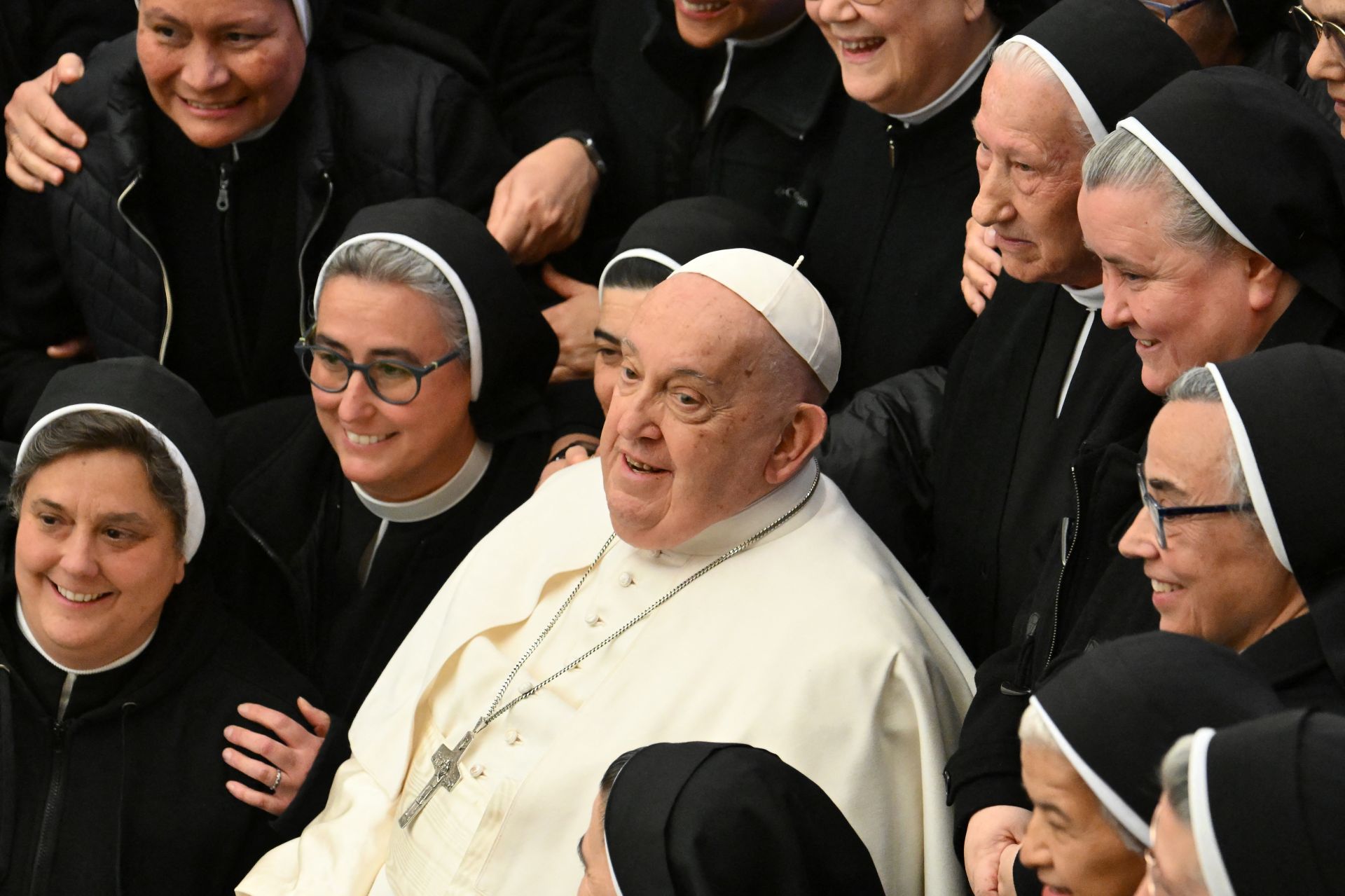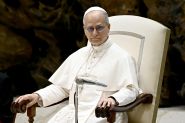- Home
- Middle East
- Pope Francis Still in Critical Condition, Despite a Slight Improvement

Pope Francis poses with nuns at the end of a weekly general audience at Paul-VI hall in The Vatican on February 5, 2025. ©Alberto Pizzoli / AFP
Pope Francis, in hospital with pneumonia in both lungs, remains in critical condition but is showing "slight improvement," the Vatican announced on Monday evening, amid growing concern for the health of the 88-year-old pontiff.
"The clinical condition of the Holy Father, while remaining critical, has slightly improved. No episodes of asthmatic respiratory crisis have occurred today; some test results are better," the Vatican stated.
The "slight renal insufficiency" he has exhibited since Sunday "does not raise concerns," and although he continues to receive oxygen, it is at "reduced flow and percentage," the statement added.
Pope Francis passed a good night and was resting, the Vatican said.
The 88-year-old pope, was admitted to the hospital on February 14 with breathing difficulties. This is the longest hospitalization in Francis's papacy.
He was initially diagnosed with bronchitis, but this developed into pneumonia in both lungs -- and on Saturday night, the Vatican warned for the first time that his condition was critical.
On Sunday, it said he continued to receive "high-flow" oxygen through a nasal cannula, and blood tests demonstrated an "initial, mild, renal failure, currently under control".
Francis is alert but "the complexity of the clinical picture, and the need to wait for the pharmacological treatments to have some effect, mean that the prognosis remains reserved", it concluded.
Abele Donati, head of the anesthesia and intensive care unit at the Marche University Hospital, told the Corriere della Sera daily that the renal failure "could signal the presence of sepsis in the early stages".
"It is the body's response to an ongoing infection, in this case of the two lungs", he said.
Professor Sergio Alfieri, leading the medical team treating the pope at Rome's Gemelli hospital, warned at a press conference on Friday that "the real risk in these cases is that the germs pass into the blood", which could result in sepsis, a life-threatening condition.
Francis's continued hospitalization has sparked widespread concern, with Catholics around the world praying for his recovery.
It has also fuelled speculation about whether he might step down.
He has always left the door open to following his predecessor, Benedict XVI, who in 2013 became the first pope since the Middle Ages to resign.
But he has repeatedly said it was not the time.
With AFP
Read more



Comments